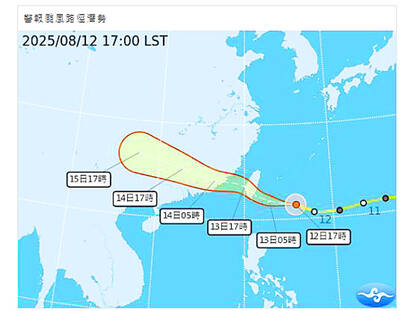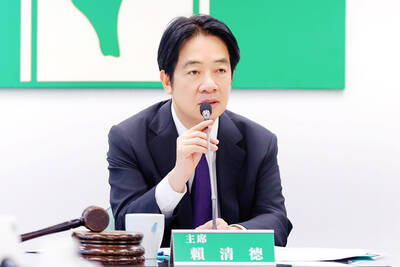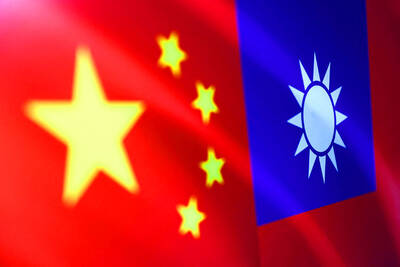US lawmakers yesterday ended a third marathon hearing into Toyota’s woes still angry at the Japanese auto giant’s handling of defects blamed for 52 US deaths and pushing tough new safety rules.
“Safety took a second seat to profits,” Democratic Senator Jay Rockefeller, chairman of the US Senate Commerce Committee, scolded top executives at Toyota.
US regulators, who frequently felt the panel’s wrath during the session, denied withering charges that too-cozy relations with Toyota made their agencies more lap dog than watchdog.
National Highway Traffic Safety Administration chief David Strickland said his administration operated “with the highest level of ethics possible” and that corporate executives were not “roaming my halls” unless summoned and sharing information.
US Transportation Secretary Ray LaHood vowed a complete investigation into reported incidents of sudden, deadly spikes in speed and said he may call for all new US vehicles to have brakes that can override their accelerators.
“We are looking at the possibility of recommending the brake override system in all manufactured automobiles,” LaHood said.
Toyota has announced it will install that feature in all of its new vehicles in North America and several existing models.
Rockefeller indicated support for making that fix mandatory for all vehicles and pursuing other solutions, adding: “This is going to require strong legislative action.”
Amid charges of Japan-bashing in the auto giant’s home market, LaHood vowed to tell Japan during an upcoming visit that US regulators have treated Toyota more fairly than their Japanese counterparts treat US beef.
“It’s a point well made,” LaHood told Republican Senator Mike Johanns, who had accused Tokyo of double standards. “I’m going to raise it when I go to Japan.”
As they had in two hearings last week, top Toyota executives apologized and unveiled a series of steps to restore consumer confidence in their firm.
Top North America executive Yoshimi Inaba said Toyota would give its US and Canadian divisions “more autonomy and decision-making power” on safety and recall issues previously handled exclusively in Japan.
US lawmakers had shown increasing anger at the way the company handled the defects and expressed disbelief in two hearings last week when top Toyota executives said all safety and recall decisions are made in Japan.
Inaba also said that a transportation secretary under former US president Bill Clinton, Rodney Slater, would lead a global quality control review.
Toyota’s top engineer, Takeshi Uchiyamada, said the firm would give US regulators up to 150 special devices to enable them to read the “data recorders” of vehicles that have crashed, where previously only Toyota could decode such “black boxes.”
The offerings did little to diminish the anger of lawmakers, who brandished Toyota documents showing the firm was worried about slipping quality as early as 2006 and regulators knew of Toyota acceleration problems as early as 2003.
Under sharp questioning, Toyota executives denied that an electronic defect was to blame for the speed surges, but vowed to take a second look after a US expert said last week he found just such a flaw.
Shortly before the hearing, LaHood’s office said the US was now looking into 43 accidents involving sudden acceleration in Toyota vehicles, involving 52 fatalities.
Johanns, saying that there had not been a single case of “mad cow” disease directly tied to US beef, queried how Japan would react if he called for a US ban on Toyota’s products “because people have died because of the way they have conducted themselves.”

GET TO SAFETY: Authorities were scrambling to evacuate nearly 700 people in Hualien County to prepare for overflow from a natural dam formed by a previous typhoon Typhoon Podul yesterday intensified and accelerated as it neared Taiwan, with the impact expected to be felt overnight, the Central Weather Administration (CWA) said, while the Directorate-General of Personnel Administration announced that schools and government offices in most areas of southern and eastern Taiwan would be closed today. The affected regions are Tainan, Kaohsiung and Chiayi City, and Yunlin, Chiayi, Pingtung, Hualien and Taitung counties, as well as the outlying Penghu County. As of 10pm last night, the storm was about 370km east-southeast of Taitung County, moving west-northwest at 27kph, CWA data showed. With a radius of 120km, Podul is carrying maximum sustained

President William Lai (賴清德) yesterday criticized the nuclear energy referendum scheduled for Saturday next week, saying that holding the plebiscite before the government can conduct safety evaluations is a denial of the public’s right to make informed decisions. Lai, who is also the chairman of the Democratic Progressive Party (DPP), made the comments at the party’s Central Standing Committee meeting at its headquarters in Taipei. ‘NO’ “I will go to the ballot box on Saturday next week to cast a ‘no’ vote, as we all should do,” he said as he called on the public to reject the proposition to reactivate the decommissioned

US President Donald Trump on Friday said that Chinese President Xi Jinping (習近平) told him China would not invade Taiwan while Trump is in office. Trump made the remarks in an interview with Fox News, ahead of talks with Russian President Vladimir Putin over Moscow’s invasion of Ukraine. “I will tell you, you know, you have a very similar thing with President Xi of China and Taiwan, but I don’t believe there’s any way it’s going to happen as long as I’m here. We’ll see,” Trump said during an interview on Fox News’ Special Report. “He told me: ‘I will never do

EXCEPTIONS: Some people could be allowed to reclaim citizenship for humanitarian reasons or because of their contributions to the nation, the interior ministry said Taiwan would soon unveil new rules banning Taiwanese residents of China from reclaiming their citizenship if they participated in Beijing’s propaganda activities, the Ministry of the Interior said on Monday. The measures were drafted following President William Lai’s (賴清德) March 13 directive that the government counter China’s espionage and influence campaigns aimed at undermining Taiwan’s sovereignty, the ministry said in a preview of the rules. The changes would affect Taiwanese who lost their citizenship after becoming permanent residents of China or obtaining passports issued by China, it said. Under the measures, former Taiwanese nationals living in China who had made statements denying the